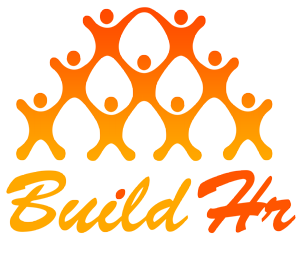RECRUITMENT BEFORE/ DURING COVID- 19 & ITS FUTURE
PREPARED BY : Manimekalai
1.1 Recruitment before COVID-19 Pandemic
1.2 Recruitment during COVID-19 Pandemic
1.3 Recruitment post-COVID-19 Pandemic
HOW THE PANDEMIC HAS IMPACTEDRECRUITMENT
1.1 Recruitment before COVID-19
The pandemic has changed the corporate world forever, whether it is going to the office, having lunch with colleagues, attending board meetings, or conducting interviews. Let us have a retrospection of a few areas of Recruitment before the pandemic:
1) Interviewing
Interviewing was, by and large, face-to-face. The only exceptions were, when the candidates were out of station or abroad. Face-to-face interviews were considered the best way to assess candidates for their gestures, expressions, engagement, eye contact and body language.
2) Remote Work
Remote Work, or Work From Home (WFH) was mostly rare. Out of station candidates were supposed to relocate and most of them were okay to relocate depending on the company, brand or (more importantly) the compensation and benefits. WFH was available only in case of exigencies.Many companies even preferred to hire only local candidates, as relocation costs added to the companies’ cost factor.
3) Compensation
Many companies used to offer a Joining Bonus as part of the compensation package, and the fixed component used to be much higher than the variable. As a result, the companies incurred a lot of fixed costs.
4) Benefits
Most companies focused on offering physical perks like car facilities, food and drinks coupons, insurance, paid leaves, retirement plans etc,to ensure an engaging employee experience.
5) Job Descriptions
Job descriptions and specifications used to be largely generic and listed the bare minimum of requirements for the job. There was not much creativity or innovation involved in designing JDs and as a result, the companies didnot sell themselves very well.
1.2 Recruitment during COVID-19
The pandemic has brought a sea change to Recruitment all around the world, and here we look at some of the key changes:
1) Video and virtual interviews have become the new normal
To protect recruiters and candidates, companies have had to do away with face-to-face meetings and embrace video and virtual interviews. Zoom, Google Meets and MS Teams; earlier considered unsuitable communication channels; are now regularly being used for interviews. Of course, it was challenging to adjust to such modes of communication initially and there were certain issues such as internet connectivity and lag; but a lot of time and cost are saved, thanks to video interviews. Additionally, they help candidates from different locations attend interviews seamlessly.Apart from the customary handshake, there is nothing that video interviews cannot offer when compared to direct meetings.
2) Location is no longer an issue
Thanks to the pandemic, companies have been forced to transfer either part of or (in some cases) all their operations online. Work from home has become the new normal in most industries, hence location has become almost irrelevant – at least for the time being. This opens up a wholly unexplored talent pool, unhindered by location or logistical restrictions, thus offering companies more options.
3) Changing demand for industries
During these times of uncertainty, candidates value job security a lot more and hence prefer to work in bigger and more established companies. Due to this, smaller companies and start-ups tend to lose out. Also, industries such as travel, hospitality, restaurant, and real estate have been worst hit. On the other hand, industries such as healthcare, technology and IT have seen a boom. Companies that use technology, in particular, are more valued by candidates and traditional companies are passed over.
4) Companies must sell themselves better
As companies recover after the initial shock and begin to grow again, candidates will have more choice about who to work for and under what circumstances. Therefore, companies must sell themselves better during the interview process – with more eye-catching job descriptions and specifications, better use of technology, Work-From-Home friendly benefits and flexibility.
5) Company culture is valued over physical perks
Since most people are working from home, physical workplace benefits become less important and less relevant. Candidates place more importance on company culture and values; particularly when they are seeking a long-term association.
6) Company reputation becomes more important than ever
Candidates have more awareness about companies than ever, as they are more careful when changing jobs due to the prevailing uncertainty. Therefore, how companies respond makes a huge difference. A job is a social safety net, thus companies will have to handle the crisis well and this will play a huge role in retaining existing talent and attracting new talent.
1.3 Recruitment post COVID-19
The pandemic is likely to have a long-lasting impact on Corporate Recruitment and will lead to new industry norms; right from hiring to retaining. Here are some of the trends that will be seen in the post-COVID19 world of recruitment:
1) Going digital by introducing AI and Robots
Since in-person recruitment has a setback of physical distancing, companies will shift their recruitment strategies to other media like Artificial Intelligence and Robotics and will use automated systems to offer an initial virtual screening and interviewing experience. Job interviews will continue to take place over Zoom, Google Meets, MS Teams or through the phone.
2) Need for Data Scientists
Internet is the need of the hour. As more employees work from home, there has been a tremendous increase in data usage globally. Hence, there will be more job opportunities for data scientists, data engineers, data analysts etc.
3) Further growth in Digital Marketing
There has already been a rise in digital marketing. People are dependent on online content, especially while working from home. Thanks to digital marketing, CMOs have cut down their spending on marketing. This will only increase further as work from home continues.
4) Demand for Cyber Security Analysts
Hackers are using the pandemic as an opportunity to attack the system with various viruses. Due to the remote setting, there have been a lot of cybersecurity threats. Hence there will be a rise in demand for Cybersecurity analysts or Chief Information Officers.
5) Need for Soft Skills
Companies have started hiring a lot of freshers, especially from B-Schools. These B-Schools place a lot of importance on soft skills like Communication, Leadership, Creativity, Critical Thinking, Empathy, Flexibility and Time Management. Candidates having such skills are preferred by most companies, as suck skillsare necessary to work efficiently from home.
6) Demand for flexible candidates
In this new normal of WFH or Remote Working, a 9-to-5 job will soon be a thing of the past. Companies need more flexible candidates who are available online to meet client/company’s requirements. This will bring about a significant change in the way people get work done together.
CONCLUSION
To sum up, it is evident that the switch from conventional to innovative tools is essential, to cater to the need of the hour and to eliminate any waste of time, resource, manpower and money.
With businesses reaping the fruit of technology enabled recruitment, it is predicted that recruitment, akin to other functions, will be carried out in a hybrid model; without compromising the human factor while still incorporating the agile technology solutions.






